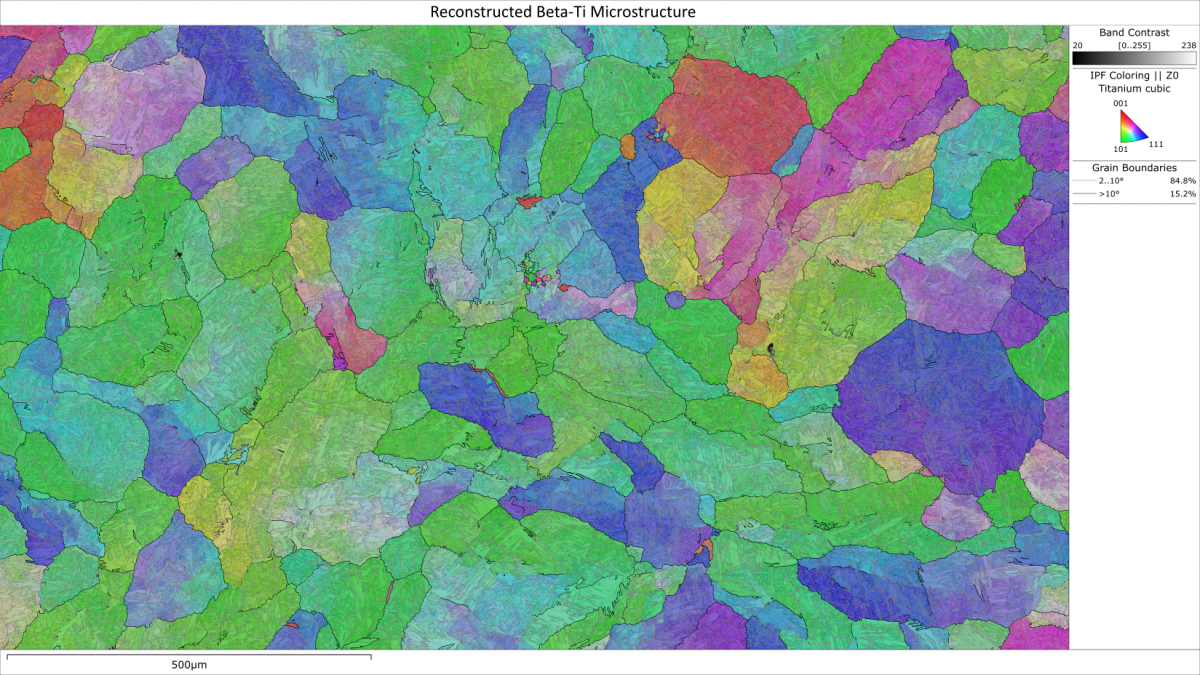Microstructure characterisation in metal powders by EBSD
We demonstrate how gas atomised copper powders can be effectively characterised using EBSD data collected with the latest high-speed Symmetry EBSD detector.
Additive manufacturing (AM) is a rapidly growing field in which Electron Backscatter Diffraction (EBSD) is playing an important role. The development of multiple new approaches to the manufacture of high-performance materials results in microstructures that differ significantly from more conventional manufacturing processes. These microstructures need to be characterised in order for researchers to understand the influence of the AM process parameters on the physical properties of the final component. EBSD is the ideal technique for this, providing information on the grain structure, phase distribution, texture, boundary properties and localised strain. Examples of EBSD application in additive manufacturing includes:

EBSD orientation map of an additively manufactured Ti64 alloy

EBSD orientation map of an additively manufactured Ti64 alloy, showing the reconstructed high T beta-Ti microstructure
We demonstrate how gas atomised copper powders can be effectively characterised using EBSD data collected with the latest high-speed Symmetry EBSD detector.
Learn how parent grain microstructures can be reconstructed from low temperature EBSD analyses using AZtecCrystal. Here, the reconstruction results for a Titanium sample are tested using in-situ EBSD analyses of beta-Ti collected at >900 °C using a new type of high temperature phosphor screen. The results indicate an excellent agreement between the as-measured and reconstructed beta-Ti microstructures.
Examine the role of electron microscopy as a powerful tool within the 3D printing process, See how to control the cleanliness of powder feedstock using automated particle classification with EDS as well as ensuring the quality of finished components using microstructural characterisation with EBSD.
Learn how to overcome challenges of in-situ heating experiments for EBSD & how the heating-rate effects the temperature recrystallisation mechanism. Explore how fast & sensitive CMOS EBSD allows the effect of cooling rates on nucleation of the room temperature phase to be measured.
In this webinar, where are joined by one of the developers of a new approach to parent grain reconstruction, Dr Hung-Wei (Homer) Yen, who will be discussing the importance of understanding parent microstructures in the steel industry.